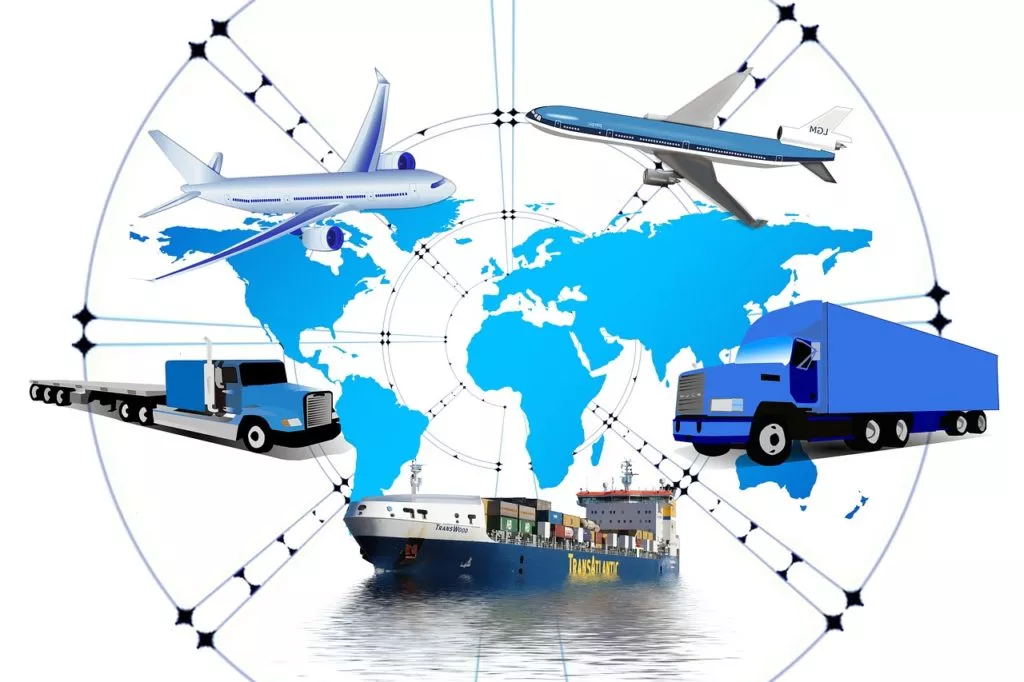The word “logistics” was originally used by the military to indicate how military personnel obtained, stored, and moved their supplies and equipment. But it’s now a widely-used term in business that refers to how resources are handled throughout a supply chain.
So, managing logistics involves acquiring resources such as equipment or commercial products, storing those items, such as in warehouses, and transporting the items to their final destination. Every part of the logistics process needs to run smoothly in order for items to be picked, packed, and delivered in a timely, cost-effective, and accurate manner.
Now you know what logistics is all about, let’s take a look at five things you should know about logistics and seven skills that logisticians need to have.

5 Things you should know about logistics
Let’s begin with some of the most crucial things you need to know about logistics.
1. What is supply management?
The first thing you need to know is that logistics involves different types of logistics management. If you’re interested in working in logistics, you could work in one or more areas of logistics management.
Supply management is one important element of logistics that you could work in. Supply management deals with the planning and coordination of resources that are needed in a certain location at a specific time.
2. What is distribution management?
Distribution management refers to managing how materials are supplied, stored, and sent out to the various locations where those materials are required. The main elements of distribution management are loading, transporting, tracking, unloading, and usage accountability.
3. What is production management?
Production management involves overseeing the various stages of combining supplied materials into a single product. For instance, a manufacturer could order several parts of a product that need to be fitted together. It will be vital for the manufacturer to know exactly when and how parts are being delivered to ensure smooth workflows and optimize efficiency.
Production management, in terms of logistics, also entails coordinating the manufacturing or assembly of parts and the physical locations for the production process.
4. What is reverse logistics management?
The other key element of logistics management is reverse logistics management. That involves recalling materials and supplies from a production or assembly process. For example, a construction project could end up with an excess of materials. Reverse logistics management ensures those materials are removed and returned to the stock supply.
5. Logisticians should get to grips with new technology fast
One more thing you should know about logistics is that it can all be achieved much more efficiently and easily when companies and logisticians get to grips with the technology that can assist them. Due to the complexity of logistics processes, multiple types of logistics management software have come onto the market to expedite the movement of resources along the supply chain.
Indeed, one key reason why leading players like Amazon have started to dominate the retail sector is that they utilize the latest logistics software to optimize each link of the supply chain.
For example, pick and pack software helps to optimize and improve the process of picking and packing orders in warehouses, which helps to streamline fulfillment operations and create enhanced accuracy.
7 Skills that logistics involves
If you’re interested in becoming a logistician, which is the term used for logistics managers, you should first ensure that you have or can gain the right skills for the job. So, let’s take a look at seven skills that logisticians need to possess.
1. Organizational skills
It should already be clear after reading the things you should know about logistics that logisticians need to possess exceptional organizational skills. Yes, software can help logisticians to stay organized, but you must have a natural ability to organize well if you want to have a successful career in logistics.
2. The ability to analyze data
Logistics is all about data, so good logisticians need to be able to read and analyze data in order to recognize trends that can be helpful. You’ll need to have good math skills, spreadsheet know-how, and a keen eye for detail to successfully get to grips with data analysis.
3. A high level of industry knowledge
To be successful in a logistics career, you’ll need to have good industry knowledge.
If you want to work as a logistician in an industry that you don’t know much about, it’s a good idea to work in another role within your chosen industry first so that you can gain skills and experience.
As a logistician, you’ll need to be skilled in knowing about the latest industry trends and technological developments.
4. The ability to manage conflicts and disputes
People are at the heart of all logistics operations. Therefore, you need to have excellent people skills and communication skills.
On top of that, you need to have the skills to manage conflicts. Coordinating different links in the supply chain will often involve disputes between people, so you must possess the skills to minimize conflicts and come up with workable solutions.
5. Excellent interpersonal skills
Seeing as people are at the heart of logistics, it’s also critical that you have excellent interpersonal skills. You should be a good team player and be able to build effective relationships with a wide range of different people.
6. The know-how to deliver results
Logistics is a results-driven industry. Therefore, you need to have the right skills to not only deliver the results that are expected but also exceed your targets. You’ll need to continually improve your work process in order to achieve the best results in the most efficient way.
7. The ability to solve problems
With so many different areas of logistics and so many different people acting as links in the supply chain, problems are sure to arise in logistics management, so you’ll need to be a good problem solver if you want to become a logistician.
You should also know how to minimize problems to prevent issues from occurring in the first place. If you have great problem-solving skills and the other skills mentioned above, a career in logistics could be the right choice for you.


